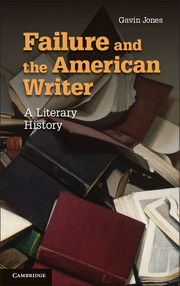Book contents
- Frontmatter
- Dedication
- Contents
- List of Illustrations
- Acknowledgments
- Introduction
- Chapter 1 Falling for Edgar Allan Poe
- Chapter 2 Herman Melville in the Doldrums
- Chapter 3 The Disappointments of Henry David Thoreau
- Chapter 4 Stephen Crane’s Fake War
- Chapter 5 The Double Failure of Mark Twain
- Chapter 6 Sarah Orne Jewett Falling Short
- Chapter 7 The Faltering Style of Henry James
- Conclusion
- Notes
- Index
Chapter 6 - Sarah Orne Jewett Falling Short
Published online by Cambridge University Press: 05 June 2014
- Frontmatter
- Dedication
- Contents
- List of Illustrations
- Acknowledgments
- Introduction
- Chapter 1 Falling for Edgar Allan Poe
- Chapter 2 Herman Melville in the Doldrums
- Chapter 3 The Disappointments of Henry David Thoreau
- Chapter 4 Stephen Crane’s Fake War
- Chapter 5 The Double Failure of Mark Twain
- Chapter 6 Sarah Orne Jewett Falling Short
- Chapter 7 The Faltering Style of Henry James
- Conclusion
- Notes
- Index
Summary
To her earliest critics, Sarah Orne Jewett’s literary failing was abundantly clear: she could not construct a coherent plot. Jewett’s regionalist writings about rural and coastal Maine hardly merited the label “stories” at all. They were sketches – limited, short, and apparently incomplete. Even her novels retained this sketchy quality. According to Horace Scudder, Jewett’s first novel, Deephaven (1877), “was a series of sketches, in which there was no development of plot, but a rambling description of life in a New England fishing-village.” Anonymous reviewers of Jewett’s second novel, A Country Doctor (1884), agreed: “It is simply an expanded sketch ... There is not in it the material for a novel proper, and it makes no pretence to being such.” “Here, also, is little or no plot,” wrote another: “The story is simply a sketch, and here will be the chief objection to it, even the best disposed critic being obliged to wish that Miss Jewett’s constructive ability were larger.” At stake in these criticisms lay the question of development. She needs to strengthen her “ability to conceive of a story which had its own beginning, middle, and end, and was not taken as a desultory chapter of personal experience,” thought Scudder. As an anonymous reviewer in the Literary World put it, “[t]here is in her pages no evolution of character, she reveals no gradual unfolding of motive, she is incapable of constructing a plot.” In an age obsessed with evolution and personal growth, Jewett’s writings were falling short.
- Type
- Chapter
- Information
- Failure and the American WriterA Literary History, pp. 112 - 132Publisher: Cambridge University PressPrint publication year: 2014



